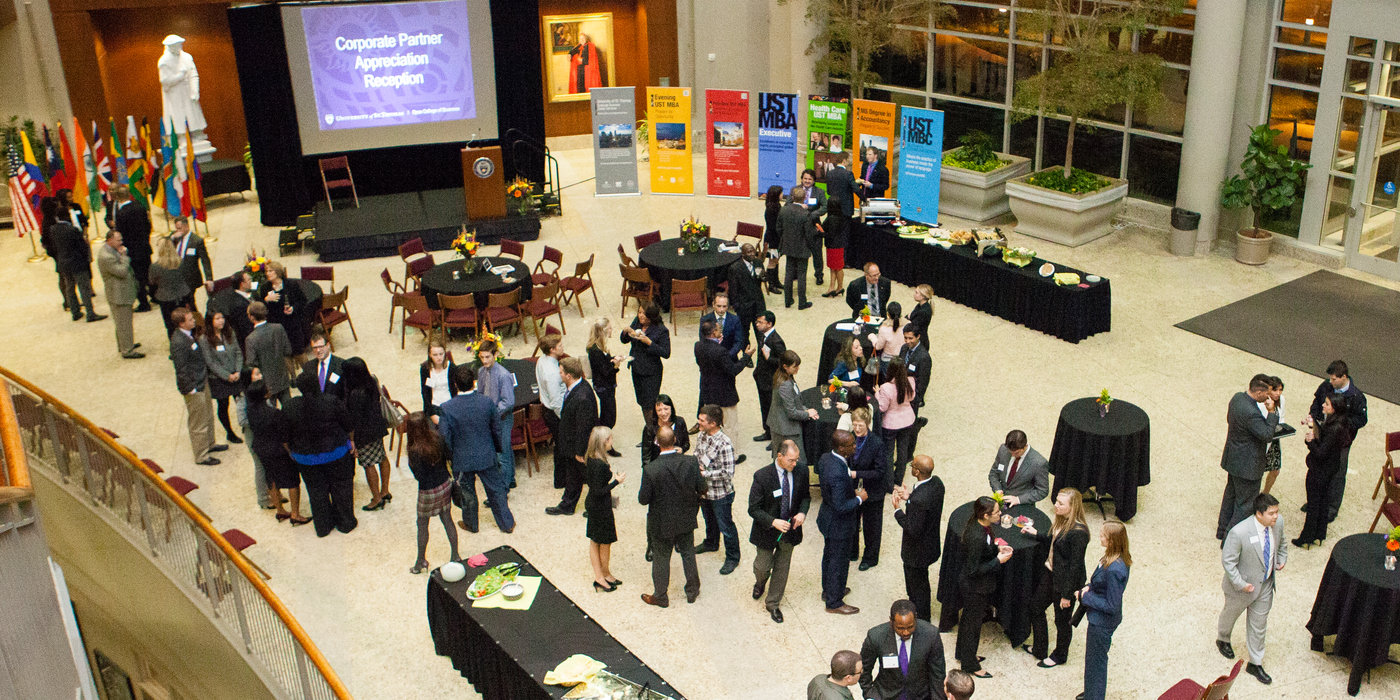Remarks by Stefanie Lenway, Dean of the Opus College of Business at the 2014 Corporate Partner Reception
While I’m new to the University of St. Thomas, I’m not new to the challenges faced by business or to the challenges faced by higher education.
What are these challenges?
I’ll start with higher education. Historically, colleges and universities have been insulated from market pressures. This meant that they –that we –were not always quickly influenced by market pressures or changes in business practice. Thanks to a huge investment by the Ford Foundation to make business education more scientific, business academics placed an emphasis on social-science based scholarship not necessarily connected to challenges faced by managers. Success for us, then, was based on peer reviewed research and publications –academic success.
At the same time, we did not face much global competition, so we were, really, the only game in town. Without competition, most schools had a steady stream of applicants and students competed for a fixed number of seats. Prospective business employees had a few options –an M.B.A. was the choice for the high performer with an interest in management and leadership, while an undergraduate degree in business administration opened doors to business careers for many. For others, a high school diploma was all that was needed to access middle class jobs in manufacturing –the auto industry, for example, provided well-paying, stable employment for thousands of Americans for decades.
And then everything changed.
You might have noticed.
The playing field for all of us became global.
Technology accelerated almost beyond our ability to manage it.
9/11 and its ensuing visa restrictions drove up demand for business education outside of the U.S.
The Great Recession of 2008 led to high unemployment and a reduction of investments in developing human capital.
These events have changed the way businesses hire and train talent. They have also fundamentally changed the way business schools operate.
Financial rewards for unskilled workers have declined, meaning that more people need more education. As more people with more diverse backgrounds seek education and training, alternatives to traditional higher education models have proliferated: for profit institutions, corporate universities, online degrees.
Universities –many led by their business schools –have had to start competing and thinking strategically.
The Opus College of Business’strategy can be summarized in a short list of what we need to do with and for our corporate partners and students:
We need to design new ways for faculty and students to interact with individual companies to gain insights into contemporary business practice.
We need to understand the needs of 21st-century business students and package programs in ways that fit into their lives through increased use of technology–lives made more complex by the increased complexity of work.
We need to create partnerships with academic counterparts and work with our corporate partners in different parts of the world.
We need to create new programs that prepare students to use new technology, including cognitive computing, artificial intelligence and business analytics.
Basically, the college needs a connection to companies so that contemporary innovations can be integrated into what we teach.
And if contemporary innovations are integrated into what we teach our students, then those very same students will be prepared to innovate, to create and to provide the entrepreneurial spark that organizations of all types need to ensure a strong future.







